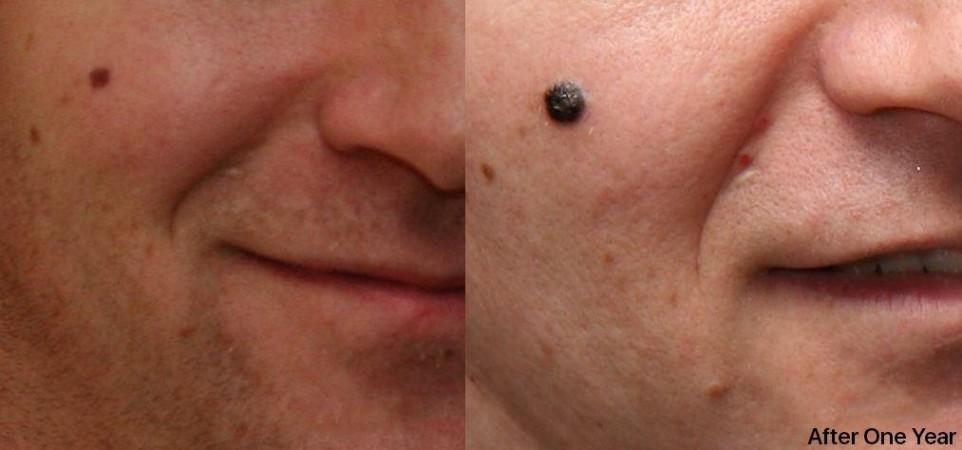While surgical interventions can enable the treatment of certain forms of skin cancer, there are few that cannot be operated upon. Offering hope to individuals suffering from the latter, a new study has reported the effective and safe action of a new combination drug therapy involving a virus against tumors in patients ailing from advanced inoperable skin cancer.
The novel drug combination used in the Phase I study illustrated the ability of a live common cold-causing virus, a coxsackievirus, to invade and destroy cancer cells. It is also among the first to demonstrate the capacity of oncolytic viruses—that infect and kill cancer cells—in safely bolstering the efficacy of generally employed cancer therapies that aid the immune system in seeking and neutralizing cancer cells.
"Our initial study results are very promising and show that this oncolytic virus injection, a modified coxsackievirus, when combined with existing immunotherapy is not only safe but has the potential to work better against melanoma than immunotherapy alone," said Dr. Janice Mehnert, senior study investigator, in a statement.
An Unusual Partnership

The two main types of skin cancer that affect human beings are melanoma and non-melanoma. According to the World Cancer Research Fund, melanoma of the skin is the 19th most common cancer worldwide. In 2018 alone, nearly 300,000 new cases were reported across the world. While immunotherapies to treat skin cancers exist, they are successful in shrinking melanoma tumors only in around one-third of the patients receiving them.
As early as the 1800s, scientists have reported shrinkage of tumours in some cancer patients who ailed from infections. These infections were later linked to pathogens such as viruses and bacteria that caused herpes and measles.
Using advanced genetic engineering tools, scientists have managed to reprogram viruses to identify particular molecules on the surface of the cells in order to infect them more easily. Through the current study, the researchers leveraged the cancer-targeting abilities of viruses and immunotherapy drugs.
Promising Results
For the study, 36 participants (mostly senior citizens) were enrolled across three cancer clinics in the US— Gabrail Cancer Center, Ohio John Wayne Cancer Institute, California; and Rutgers Cancer Institute, New Jersey. They received a combination of an experimental coxsackievirus-derived drug known as V937, and an immunotherapy drug called pembrolizumab, which is commonly used to treat melanoma.

The scientists noted that the injections of V937 along with pembrolizumab were well-tolerated among the patients. It was also found that in approximately 47 percent of the participants who received the combined therapy periodically (every few weeks) for at least two years, shrinkage of melanoma tumors was observed.
Most importantly, 8 patients (22 percent) who received the two-drug treatment underwent total remission (i.e) no remaining signs of melanoma were observed. Additionally, the study also found that patients who responded the best to the combined treatment were less likely to respond to only immunotherapy.
Side effects such as fatigue and rashes were found to be minimal. 13 participants (36 percent) did experience adverse immune reactions in the lungs, liver, or stomach. However, these were similar to the side effects that accompany treatment involving only pembrolizumab.
Need for Further Research

Spurred by the positive results of the study, the team is looking forward to the next stage of clinic trials. This phase will include patients who are afflicted with widespread melanoma, and also patients who suffer from tumours, which when shrunken using the combination therapy, may be easy to remove surgically.
Nevertheless, Dr. Mehnert warned that additional testing will have to yield successful results before the treatment can be considered a 'go-to therapy' or a 'standard of care' for treating patients with advanced melanoma (skin cancer that has proliferated to other parts of the body).
The scientists also stated that in order to ascertain the manner in which the molecular composition of tissues in the vicinity of the tumors is affected, further experiments were required. "Our goal is to determine if the virus turns the tumor microenvironment from 'friendly' to one that is 'unfriendly,' making the cancer cells more vulnerable to pembrolizumab," concluded Dr. Mehnert.















